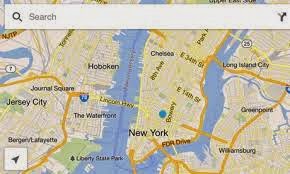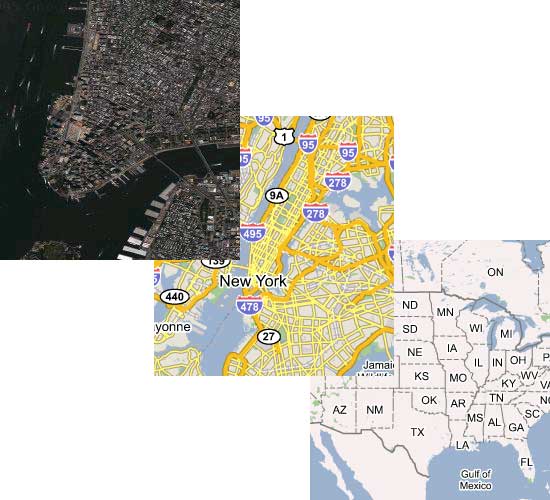Google Maps Java Jar Free Download
- Posted in:
- 13/11/17
- 48

Download google-maps-apis.jar. Files contained in google-maps-apis.jar: META-INF/MANIFEST.MF com.googleapis.maps.schema.AddressComponent.class com.googleapis.maps.
README.md Java Client for Google Maps Services Description Use Java? Want to something? This library brings the to your server-side Java application.

The Java Client for Google Maps Services is a Java Client library for the following Google Maps APIs: • • • • • • • Keep in mind that the same apply to usage of the APIs when they're accessed through this library. Note: The Java Client for Google Maps Services is for use in server applications. If you're building a mobile application, you will need to introduce a proxy server to act as intermediary between your mobile application and the.
The Java Client for Google Maps Services would make an excellent choice as the basis for such a proxy server. Serial Number Rotary Watch Review. Support This library is community supported.
We're comfortable enough with the stability and features of the library that we want you to build real production applications on it. We will try to support, through Stack Overflow, the public and protected surface of the library and maintain backwards compatibility in the future; however, while the library is in version 0.x, we reserve the right to make backwards-incompatible changes. If we do remove some functionality (typically because better functionality exists or if the feature proved infeasible), our intention is to deprecate and give developers a year to update their code. If you find a bug, or have a feature suggestion, please. If you'd like to contribute, please read. Requirements • Java 1.7 or later.
• A Google Maps API key. Teechart For Delphi 7 Download there. API keys Each Google Maps Web Service request requires an API key or client ID. API keys are freely available with a Google Account. The type of API key you need is a Server key.
To get an API key: • Visit and log in with a Google Account. • Select one of your existing projects, or create a new project. • Enable the API(s) you want to use. The Java Client for Google Maps Services accesses the following APIs: • Directions API • Distance Matrix API • Elevation API • Geocoding API • Places API • Roads API • Time Zone API • Create a new Server key.
• If you'd like to restrict requests to a specific IP address, do so now. For guided help, follow the instructions for the. You only need one API key, but remember to enable all the APIs you need. For even more information, see the guide to. Important: This key should be kept secret on your server. Installation You can add the library to your project via Maven or Gradle.
Note: Since 0.1.18 there is now a dependency on. You need to add one of the adapter dependencies that makes sense for your logging setup.
In the configuration samples below we are integrating, but there are others like and that will make more sense in other configurations. This will stop a warning message being emitted when you start using google-maps-services. GeoApiContext context = new GeoApiContext.
Builder().apiKey( 'AIza. ').build(); GeocodingResult[] results = GeocodingApi.geocode(context, '1600 Amphitheatre Parkway Mountain View, CA 94043 ').await(); Gson gson = new GsonBuilder().setPrettyPrinting().create(); System.out.println(gson.toJson(results[ 0].addressComponents)); Below is the same example, using client ID and client secret (digital signature) for authentication.
This code assumes you have previously loaded the clientID and clientSecret variables with appropriate values. For a guide on how to generate the clientSecret (digital signature), see the documentation for the API you're using. For example, see the guide for the. GeoApiContext context = new GeoApiContext.
Builder().enterpriseCredentials(clientID, clientSecret).build(); GeocodingResult[] results = GeocodingApi.geocode(context, '1600 Amphitheatre Parkway Mountain View, CA 94043 ').await(); Gson gson = new GsonBuilder().setPrettyPrinting().create(); System.out.println(gson.toJson(results[ 0].addressComponents)); The GeoApiContext is designed to be a in your application. Please instantiate one on application startup, and continue to use it for the life of your application. This will enable proper QPS enforcement across all of your requests. For more usage examples, check out. Features Google App Engine Support You can use this client library on Google App Engine with a single code change. New GeoApiContext. Builder( new GaeRequestHandler.
Builder()).apiKey( 'AIza. ').build(); The new GaeRequestHandler.Builder() argument to GeoApiContext.Builder's requestHandlerBuilder tells the Java Client for Google Maps Services to utilise the appropriate calls for making HTTP requests from Google App Engine, instead of the default based strategy. Rate Limiting Never sleep between requests again! By default, requests are sent at the expected rate limits for each web service, typically 10 queries per second for free users. If you want to speed up or slow down requests, you can do that too, using new GeoApiContext.Builder().queryRateLimit(qps).build().
Note that you still need to manually handle the when you're paging through multiple result sets. Retry on Failure Automatically retry when intermittent failures occur. That is, when any of the retriable 5xx errors are returned from the API. To alter or disable automatic retries, see these methods in GeoApiContext: •.disableRetries() •.maxRetries() •.retryTimeout() •.setIfExceptionIsAllowedToRetry() Client IDs Google Maps APIs Premium Plan customers can use their to authenticate, instead of an API key. POJOs Native objects for each of the API responses. Asynchronous or synchronous -- you choose All requests support synchronous or asynchronous calling style.